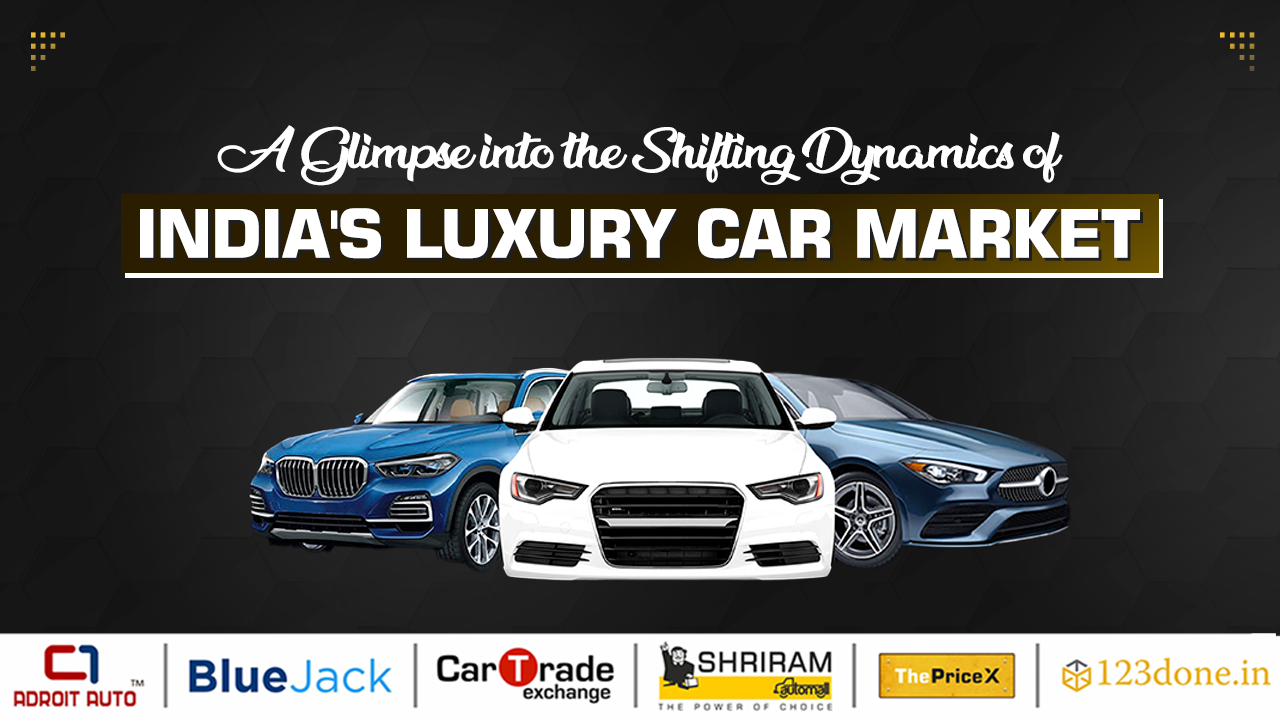A Glimpse into the Shifting Dynamics of India's Luxury Car Market

In the vibrant tapestry of India's automotive landscape, the luxury car segment is painting a picture of unprecedented growth. The year 2023 witnessed a surge in high-end car sales, setting a new record and paving the way for a transformative 2024. The allure of luxury, coupled with an increasing number of millionaires, has fuelled the appetite for opulence and exclusivity in the Indian market.
Projections for 2024 hint at the luxury car market surpassing the remarkable 50,000-unit sales milestone for the first time. This surge comes as a testament to the industry's resilience, with key players eyeing robust double-digit growth despite the broader market's consolidation since 2021. In 2023, the luxury car market outpaced its mainstream counterpart, boasting a growth rate exceeding 20%, with volumes reaching an estimated peak of 46,000 to 47,000 units.
Mercedes-Benz India, a stalwart in the luxury car segment, celebrated its highest-ever annual sales in 2023, crossing the 17,400-unit mark and achieving a noteworthy 10% growth. The Luxury carmaker reflects on the robust performance, emphasizing a strong momentum carrying into 2024 with ambitious double-digit growth aspirations.
The success story extends to competitors like BMW India, witnessing an 18% surge to 14,172 cars, and Audi India, experiencing an impressive 90% growth to approximately 9,000 units, approaching its previous peak.
The driving force behind this boom lies in the growing ranks of millionaires in India, numbering around 3.5 lakhs and steadily rising. This surge in affluence has translated into robust spending patterns, notably in the luxury car segment. The profile of luxury car buyers has diversified, now including working professionals, startups, and a younger demographic, mirroring the changing face of India's wealth landscape.
Mercedes-Benz India reveals that 40% of its customers are first-time luxury car buyers, marking a shift towards a younger clientele. Additionally, the luxury car market's average selling price has witnessed a significant uptick, reflecting a maturing consumer base. The company notes a qualitative change, with over 25% of total sales emanating from the top-end vehicle segment priced above Rs 1.5 crore.
As the industry navigates disruptions, including the recent Red Sea crisis impacting the supply chain, luxury carmakers remain optimistic. The challenges posed by the semiconductor crisis have largely subsided, and the industry adapts to the dynamic environment with flexibility and resilience.
In the realm of Electric Vehicles (EVs), luxury carmakers in India are at the forefront, boasting higher penetration compared to the mainstream market. The EV segment accounts for 4-6% among German carmakers and a substantial 20% for Volvo Cars. Mercedes-Benz India envisions EVs constituting 25% of total sales in the next five years, reflecting a gradual shift fuelled by consumer desirability.
The road ahead for the luxury car market involves not only sustained growth but also the exploration of exporting premium vehicles from India. The export landscape remains dynamic, with occasional batches exported to cater to global demand, showcasing the quality of cars produced in India.
In essence, the narrative of India's luxury car market unveils a captivating tale of prosperity, evolving consumer preferences, and the industry's resilience. As the journey continues, the market braces for new model launches, expanded portfolios, and an unwavering commitment to sustainability, mirroring the shifting tides of the global automotive landscape.

 Download Our App
Download Our App



